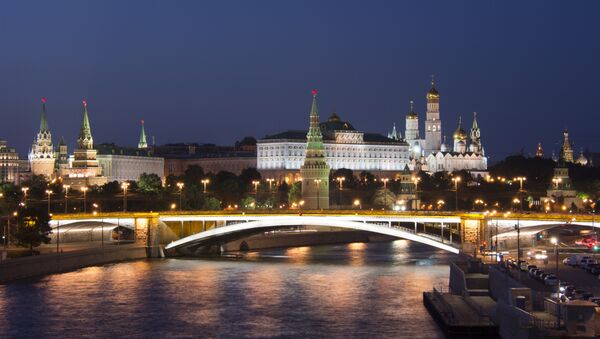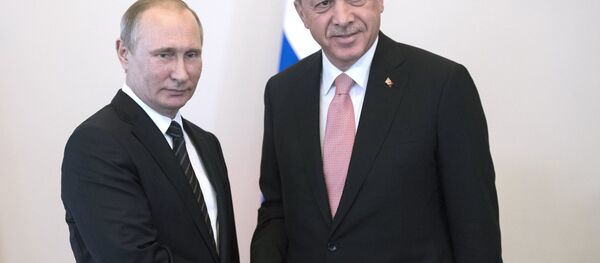"Russia has managed to once again find its voice and become the embodiment of the third path," he said, saying that the United States and China pursue distinctive foreign policy paradigms. But economic crisis is a trade-off for an independent foreign policy, he added.
Mered also listed Russia's strategic advantages that include vast territories with access to different maritime zones, superlative research and development capabilities and potent armed forces.
For his part, French writer Alexandre Del Valle told Atlantico that "Russia has not reached its [foreign policy] goals, but it is moving in the right direction."
Russia's foreign policy is aimed at promoting a more balanced world-order that does not gravitate towards a single center of power. As a result, Moscow "does not want to be the global leader and Washington's adversary," he said.
Russian authorities want the country to lead a group of nations that are not necessarily opposed to the West, but that do not share Washington's approach to dealing with global security challenges.
The Syrian conflict and the Iran nuclear deal show that "Russia under Vladimir Putin is trying to discuss global issues with Washington as equals," the writer observed. "But first and foremost Putin wants the West to acknowledge Russia's interests in its neighborhood, primarily with regard to Georgia, Armenia, Belarus, Transnistria, Moldavia and Ukraine."
Del Valle also said that Moscow has "grown tired" of Washington using human rights to justify military interventions.
"Putin is still open for cooperation with Europe and the West but only under the condition that they cast away arrogance and stop meddling in internal affairs of countries that Russia views as strategically important," he said.
Del Valle further noted that China, Turkey, Brazil, India, Indonesia, Egypt, Algiers share Russia's view on Washington's foreign policy.
The French writer also commented on the thaw between Russia and Turkey, saying that the row was bound to be temporary.
"Russian and Turkish economies perfectly complement each other," he said. "Both countries need each other when it comes to economy and energy. This is why the cold spell [between Russia and Turkey] could not last long."



